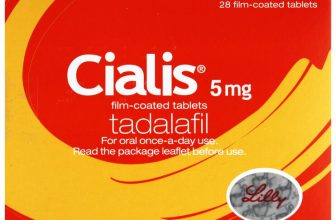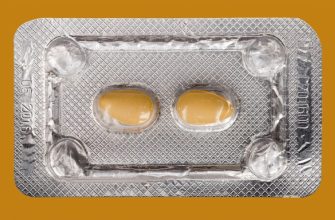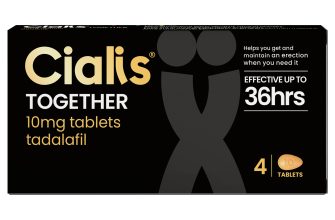Simultaneous use of Viagra and Cialis isn’t generally recommended. While both treat erectile dysfunction, combining them significantly increases the risk of side effects like low blood pressure and headaches. Your doctor should always guide your medication choices.
Instead of combining, consider discussing alternative treatment options with your physician. They can assess your specific health profile and suggest the most suitable medication or therapy. This might involve trying one drug at a time, adjusting dosages, or exploring other ED treatments.
Remember, open communication with your doctor is key. They can help you find the best path to managing erectile dysfunction safely and effectively, based on your individual needs and medical history. Don’t hesitate to ask questions and fully understand the potential risks and benefits of any treatment plan. Always follow your doctor’s instructions meticulously.
Consider exploring alternative therapies such as lifestyle changes (diet, exercise, stress management) or counseling, which can also greatly improve erectile function. These approaches often complement medication effectively.
- Viagra and Cialis Together: A Detailed Guide
- Understanding the Individual Effects of Viagra and Cialis
- Viagra’s Mechanism of Action
- Cialis’s Unique Properties
- Cialis’s Mechanism and Differences
- Potential Synergistic Effects and Enhanced Benefits
- Risks and Side Effects of Combined Use
- Drug Interactions: What to Avoid When Taking Viagra and Cialis
- Proper Dosage and Timing Considerations
- Consulting a Healthcare Professional: The Importance of Medical Advice
Viagra and Cialis Together: A Detailed Guide
Never combine Viagra and Cialis. Taking both simultaneously significantly increases your risk of dangerous side effects.
Both medications work by increasing blood flow, and combining them can lead to dangerously low blood pressure, heart problems, and vision issues. Consult your doctor before considering either medication. They can assess your health and determine the safest and most effective treatment option for you.
If you experience chest pain, dizziness, or sudden vision changes after taking either Viagra or Cialis, seek immediate medical attention.
Your doctor may prescribe one medication or the other, but never both at the same time. They will consider your medical history, current medications, and overall health to recommend the best approach. This personalized approach is crucial for safe and effective treatment.
Remember, self-treating erectile dysfunction can be risky. Always discuss treatment options with a healthcare professional before starting any medication.
Exploring alternative treatments, such as lifestyle changes, might be recommended alongside or instead of medication. These changes might include diet, exercise, and stress management techniques.
Open communication with your doctor is key to managing erectile dysfunction successfully and safely.
Understanding the Individual Effects of Viagra and Cialis
Viagra (sildenafil) and Cialis (tadalafil) both treat erectile dysfunction (ED) by increasing blood flow to the penis, but they differ significantly in their duration of action and potential side effects. Viagra typically takes effect within 30-60 minutes and lasts for 4-5 hours. Its effects are relatively short-lived. Common side effects include headache, flushing, nasal congestion, and visual disturbances. These usually are mild and temporary.
Viagra’s Mechanism of Action
Viagra works by inhibiting phosphodiesterase-5 (PDE5), an enzyme that breaks down cyclic GMP, a molecule crucial for penile erection. Higher levels of cGMP facilitate relaxation of penile blood vessels, leading to improved blood flow.
Cialis’s Unique Properties
Cialis, on the other hand, boasts a much longer duration of action, lasting up to 36 hours. This extended effect makes it popular for its spontaneity benefits. Side effects mirror those of Viagra but may differ in frequency and intensity. Cialis may cause back pain and muscle aches more frequently than Viagra.
Cialis’s Mechanism and Differences
Similar to Viagra, Cialis also inhibits PDE5. However, its chemical structure allows for a longer-lasting effect on cGMP levels. This results in the prolonged efficacy in treating ED. Consult a doctor to determine which medication is best suited for individual needs and health conditions.
Potential Synergistic Effects and Enhanced Benefits
Combining Viagra (sildenafil) and Cialis (tadalafil) isn’t recommended without direct medical supervision. However, understanding potential synergistic effects is crucial for informed discussion with your doctor.
One potential benefit lies in the differing mechanisms and durations of action. Viagra’s effects are typically shorter-lived, while Cialis offers a longer-lasting effect. Combining them might theoretically provide a broader window of erectile function support, though this is speculative and requires professional evaluation.
- Improved Erectile Response: Some men might experience a more robust or quicker erectile response. However, this isn’t guaranteed and individual results vary considerably.
- Enhanced Confidence: The potential for improved erectile function may positively impact a man’s confidence and self-esteem.
However, it’s vital to acknowledge the potential risks. Combining these medications can increase the likelihood of side effects, such as:
- Headaches
- Facial flushing
- Muscle aches
- Indigestion
- Low blood pressure
Serious side effects, though rare, include heart problems and vision changes. A doctor needs to assess your health before considering any combination therapy. They can help determine if the potential benefits outweigh the risks and adjust dosages accordingly.
This information is for educational purposes only and does not constitute medical advice. Always consult your physician before making decisions about your health or medication.
Risks and Side Effects of Combined Use
Never combine Viagra and Cialis. This carries significant health risks.
Increased risk of low blood pressure: Both medications lower blood pressure. Combining them dramatically increases the chance of dangerously low blood pressure, potentially leading to fainting, dizziness, or even heart attack.
Severe headaches: The likelihood of experiencing intense headaches significantly rises with concurrent use. These can be debilitating.
Visual disturbances: Expect a higher probability of blurred vision, changes in color perception, or temporary vision loss. This risk is amplified by combining these drugs.
Muscle aches and back pain: These side effects, common with each drug individually, become more pronounced when taken together.
Heart problems: The combined effect on blood vessels significantly increases the risk of cardiovascular issues, particularly in individuals with pre-existing heart conditions.
Prolonged erection (priapism): This painful and potentially damaging condition becomes considerably more likely when both drugs are used concurrently. Seek immediate medical attention if this occurs.
Consult your doctor: Before taking any medication for erectile dysfunction, a thorough medical evaluation is paramount. Your physician can help determine the safest and most appropriate treatment for your specific needs. Ignoring this advice can have serious consequences.
Drug Interactions: What to Avoid When Taking Viagra and Cialis
Never combine Viagra or Cialis with nitrates (found in some heart medications). This combination can cause a dangerous drop in blood pressure.
Avoid alpha-blockers, commonly prescribed for high blood pressure or enlarged prostate. These medications can significantly lower blood pressure when taken with Viagra or Cialis, potentially leading to dizziness or fainting.
Certain antifungals, particularly ketoconazole and itraconazole, can increase the levels of Viagra and Cialis in your blood, raising the risk of side effects. Consult your doctor before combining these medications.
Grapefruit juice inhibits enzymes that metabolize these drugs, increasing their concentration in your bloodstream. Avoid grapefruit juice while taking Viagra or Cialis.
Some HIV protease inhibitors can interact with Viagra and Cialis, potentially increasing their concentration. Discuss this with your doctor if you are taking these medications.
Always inform your doctor about all medications, supplements, and herbal remedies you’re taking before starting Viagra or Cialis. This allows them to assess potential interactions and ensure your safety.
Proper Dosage and Timing Considerations
Never combine Viagra and Cialis without explicit direction from your doctor. Simultaneous use significantly increases the risk of side effects.
If your doctor approves a combined regimen, they will prescribe the appropriate dosages for each medication and specify the timing. This will depend on your individual health profile and the specific medications involved. Commonly, lower doses of both drugs are recommended.
For example, a doctor might prescribe 2.5mg to 5mg of Cialis daily and a 25mg dose of Viagra as needed. The exact timing depends on the drug’s half-life and how your body processes each medication. Always follow your doctor’s instructions precisely regarding frequency and spacing of doses.
Taking Viagra and Cialis too close together can amplify side effects like headaches, flushing, and nasal congestion. Your doctor’s guidance on appropriate timing ensures the medications work safely and effectively together for you.
Be sure to fully understand and adhere to your doctor’s prescribed schedule to minimize potential risks. Always report any unusual or concerning symptoms immediately to your physician.
Consulting a Healthcare Professional: The Importance of Medical Advice
Always discuss combining Viagra and Cialis with your doctor. This ensures your safety and efficacy.
Your physician can assess your overall health, including any pre-existing conditions like heart problems or high blood pressure, which may interact negatively with these medications. They’ll consider your current medications and determine the appropriate dosage, if any.
Don’t self-medicate. Improper use can lead to serious health risks, including dangerously low blood pressure or vision problems. Your doctor’s expertise guarantees a personalized plan.
| Potential Risk | Doctor’s Role |
|---|---|
| Low blood pressure | Monitors blood pressure, adjusts medication accordingly. |
| Heart problems | Evaluates cardiovascular health, rules out contraindications. |
| Vision issues | Identifies potential vision side effects, recommends monitoring. |
| Drug interactions | Reviews all medications, identifies and manages potential conflicts. |
Schedule a consultation to discuss your specific needs and concerns. Open communication with your doctor is key to a safe and successful outcome. They can answer all your questions and provide personalized guidance.







